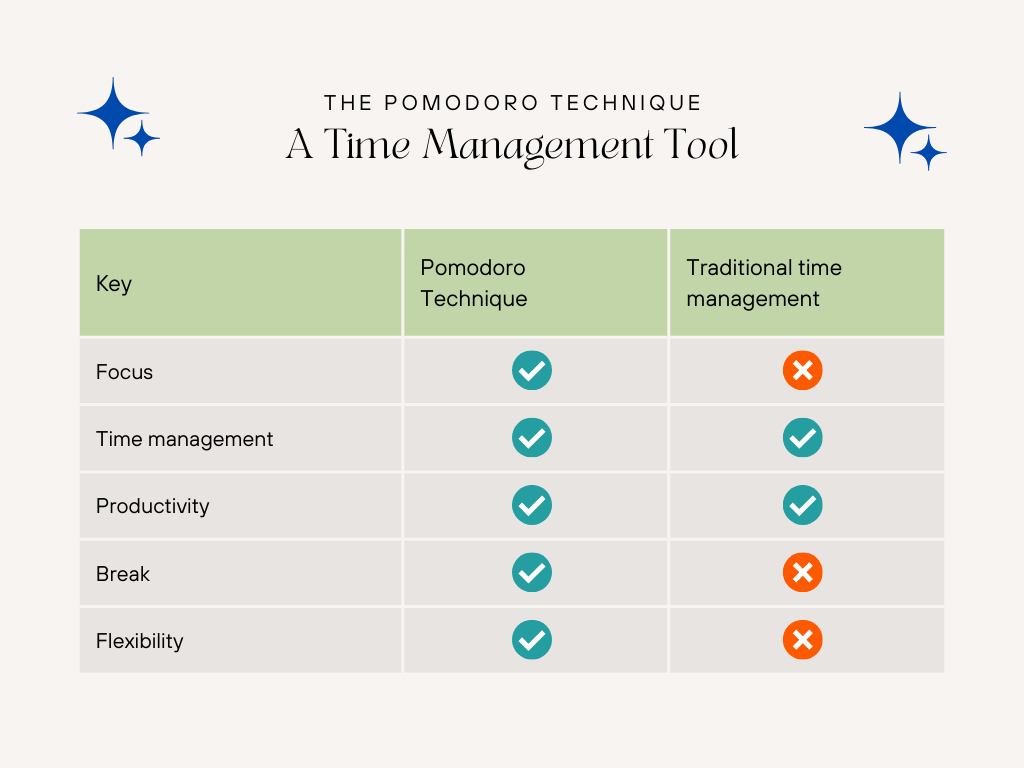
Why Focus Feels Harder Than Ever (And What You Can Actually Do About It)
Let’s be honest. Staying focused feels nearly impossible these days. Notifications buzz. Thoughts wander. You sit down to study... and somehow organize your desk instead.
I’ve been there—too many times. In fact, during my final semester, I caught myself re-reading the same page for 20 minutes. My eyes were moving, but my brain? Checked out.
This isn't just a "you" or "me" problem—it’s a real challenge. Studies from the American Psychological Association show that more than 65% of students report trouble concentrating for even short study sessions. That’s not laziness—it’s overstimulation, mental fatigue, and a lack of structure.
But here’s the thing: Focus isn’t something you’re born with or without. It’s something you build like a muscle. And once you understand what chips away at it—and what strengthens it—you’ll finally stop spinning your wheels and start making real progress.
Table of Content
- Why Focus Feels Harder Than Ever (And What You Can Actually Do About It)
- What’s Draining Student Focus? A Quick Reality Check
- Common Focus Killers to Avoid
- Final Thoughts: Focus Is Built, Not Born
- FAQs
What’s Draining Student Focus? A Quick Reality Check
Before we talk about solutions, let’s get real about the problem.
-
Phones that never stop lighting up
-
Cluttered, noisy study spaces
-
Skipping breakfast or lunch
-
Sleep that's more of a suggestion than a habit
-
Trying to do too many things at once
Sound familiar? You're not alone.
One student I worked with said, “I thought I had ADHD until I started tracking my screen time. I checked my phone every 6 minutes—no wonder I couldn’t focus.”
Awareness is step one. Now, let’s talk about what works.
1. Pomodoro Isn’t Just a Buzzword—It Actually Works

I’ll admit it—I was skeptical at first. Setting a timer for 25 minutes and taking breaks sounded too simple.
But then I tried it during finals week. I stayed more alert, less stressed, and finished things on time.
Here’s how it goes:
-
Study for 25 minutes
-
Take a 5-minute break
-
After 4 rounds, take a longer break
It’s like giving your brain little sips of water instead of forcing it to chug a gallon at once.
Research from The Learning Scientists shows that Pomodoro students boost retention and get through material faster.
2. Mindfulness: Not Just for Monks

I used to roll my eyes at meditation apps, but after one especially stressful week, I tried a three-minute breathing session. There was no music, no mantras, just breathing.
It worked. My thoughts slowed down. My focus came back.
Even a few minutes of mindfulness before study sessions can ground you. You don’t have to sit cross-legged or burn incense. Just breathe.
Harvard studies confirm that mindfulness improves sustained attention, and it doesn’t take weeks to see results.
3. Movement Makes Minds Work Better

Ever feel foggy after sitting too long? That’s not your imagination.
It refreshes the brain when students stretch, walk, or even do a few jumping jacks.
Harvard Medical School notes that 20 minutes of light movement improves focus and alertness. That’s less than a single TV episode.
Try this: Dance to one song between chapters. Go outside for five minutes. Or stretch your arms, legs, and back before you dive into studying.
4. Sleep Isn’t Optional—It’s Foundational

If you're not sleeping well, no productivity hack will save you.
The National Sleep Foundation reports that sleep-deprived students struggle with memory, attention, and even mood regulation.
Signs you’re not getting enough rest:
-
You reread the same paragraph several times
-
You’re snapping at people for no reason
-
You feel mentally foggy even after caffeine
Try going to bed and waking up at the same time every day. Even on weekends.
5. Your Brain Eats What You Do

Skipping meals or surviving on chips and soda might get you through a late-night cram session, but it comes at a cost.
Food fuels the brain. Without it, focus fades.
Focus-friendly foods:
-
Eggs, oats, nuts
-
Berries
-
Leafy greens
-
Plenty of water
According to the Journal of Nutrition, students who eat a balanced breakfast perform better in attention-based tasks. So yes—what you eat affects how well you think.
6. The Study Space Audit

Is your study space helping you or holding you back?
One student told me, “I used to study at the kitchen table—until I realized I was trying to memorize equations while my little brother sang songs from cartoons.”
You need a space that signals: this is where I focus.
Checklist:
-
Good lighting
-
Minimal clutter
-
Only what you need on your desk
-
Headphones or soft background sound
Your brain associates environments with activities. Change the space, change the mindset.
7. Time Blocking Makes Procrastination Quieter

Here’s what used to happen: I’d sit down, open my notes, and then... stare. I didn’t know where to start. So I’d do nothing.
Time blocking changed that.
I’d write down:
-
3:00–3:45 – Study Biology
-
3:45–4:00 – Break
-
4:00–4:30 – Review Math formulas
Simple, clear, and doable. It kept me from wasting energy deciding what to do next.
8. Your Phone Is Not Your Friend While Studying
Phones are distraction machines.
Even if you’re not checking it, just seeing it light up pulls your focus away.
Try this:
-
Airplane mode
-
App blocker (Forest or Focus Keeper)
-
Keep your phone in another room
One student said, “I studied for 40 minutes straight for the first time when I left my phone in the kitchen. It felt weird—but good.”
9. Breaks Help You Go Longer, Not Slower
No one can study for hours without losing steam. Breaks aren’t slacking—they’re smart.
Take 5–10 minutes every hour to:
-
Stretch
-
Drink water
-
Breathe
-
Rest your eyes
Let your mind breathe.
10. Set Small Goals—And Actually Celebrate Them
Instead of saying “Study for 5 hours,” try:
-
Finish chapter 3
-
Review 10 new terms
-
Summarize one article
Track what you do. Checking off a task gives your brain a little boost of motivation. Progress becomes visible, and that builds momentum.
Stories That Prove These Work
Sneha, 17: “Using Pomodoro with my favorite instrumental playlist helped me stop jumping between tabs. I could finally finish my essays on time.”
Ramesh, 20: “I moved my study area to the corner of my room, away from my bed and snacks. My focus doubled. I didn’t even change my schedule—just the space.”
These aren’t theories—they’re real results.
Experts Weigh In
Dr. Amishi Jha: “Attention is trainable. Mindfulness makes it stronger.”
Angela Duckworth: “Self-discipline—not intelligence—is the better predictor of success.”
Oxford Learning Center: “Your environment matters. It can increase effective learning time by 60 percent.”
Common Focus Killers to Avoid
-
Loud, distracting music
-
Sugary snacks and energy drinks
-
Studying in bed
-
Multitasking
-
Random, unstructured sessions
Fixing even one of these can shift everything.
Final Thoughts: Focus Is Built, Not Born
You don’t need more time. You need better focus.
And that doesn’t mean turning your life upside down. It means building a few simple habits, consistently.
Start with one:
-
Try Pomodoro
-
Get better sleep
-
Change your study space
Then build from there. Focus is a skill, and you're capable of building it.
FAQs
1. What’s the fastest way to improve focus?
Start with Pomodoro. Set a timer for 25 minutes. Focus. Break. Repeat.
2. Can I listen to music while studying?
Yes, but stick to instrumental or ambient tracks. Lyrics tend to distract.
3. Is poor sleep really that bad for focus?
Absolutely. One night of poor sleep can significantly reduce memory and attention.
4. What should I eat to improve focus?
Whole foods work best: nuts, berries, oats, leafy greens, and water.
5. How do I know if I’m improving my concentration?
Track your uninterrupted focus time. Improvement often shows in speed, clarity, and how much you retain.
Study Tips Students




